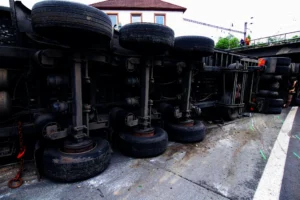In the ever-evolving landscape of the trucking industry, the safety of both the drivers and individuals sharing the road with these colossal vehicles takes precedent. With the trucking industry responsible for transporting approximately 70% of all freight in the United States, according to the American Trucking Associations, the integration of advanced technologies and emerging trends aimed at augmenting safety is not just commendable but essential.
Autonomous Trucks: The Road Ahead
One of the most groundbreaking advancements in the trucking industry is the development of autonomous, or self-driving, trucks. According to the National Highway Traffic Safety Administration, human error plays a role in 94% of all traffic accidents, and autonomous vehicles have the potential to significantly reduce those errors. However, a transition to autonomous trucks, raises critical questions about liability and accident accountability, shifting the focus from driver negligence to potential product liability issues.
For a free legal consultation, call 614-481-6000
The Path to Pursuing Product Liability Claims
Pursuing a product liability claim requires meticulous evidence collection and expert analysis. The legal strategy hinges on demonstrating the inherent flaw in the defective part—a complex process that often involves sifting through extensive maintenance records and accident reports.
Advanced Driver Assistance Systems (ADAS)
Another leap forward in trucking safety comes from the deployment of Advanced Driver Assistance Systems (ADAS). The Insurance Institute for Highway Safety reported that vehicles equipped with ADAS technologies could reduce rear-end collisions by up to 40%. By providing real-time assistance and alerts to drivers, including for example, automatic emergency braking, steering assistance, and warning and monitoring systems, ADAS significantly reduces the risk of collisions. As these systems become more prevalent, we anticipate a notable decrease in accident cases stemming from driver fatigue and distraction.
Click to contact our personal injury lawyers today
Electronic Logging Devices (ELD)
The mandate of Electronic Logging Devices (ELD) marks a pivotal shift towards ensuring driver compliance with Hours of Service regulations. According to the Federal Motor Carrier Safety Administration (FMCSA), the use of ELDs could prevent about 1,844 crashes, 562 injuries, and save 26 lives annually by enforcing adherence to driving hour limits. This not only has the potential to diminish the occurrence of such accidents but also impacts accident litigation, as ELD data provides irrefutable evidence of compliance or non-compliance with regulations.
Complete a Free Case Evaluation form now
Impact on Accident Cases
The advent of these technologies introduces a new dimension to the legal considerations surrounding trucking accidents. The potential for these innovations to mitigate accidents is immense, yet they also bring about complex legal challenges in determining fault and accountability. The trucking industry stands on the cusp of a technological revolution that promises to redefine safety standards. As safety technologies continue to evolve, so will the strategies employed by legal professionals in advocating for the victims of trucking accidents.
At Cooper Elliott, we remain committed to navigating these complexities, ensuring justice and compensation for those affected by trucking accidents, while embracing the positive changes these technologies bring to road safety.
Call or text 614-481-6000 or complete a Free Case Evaluation form










































